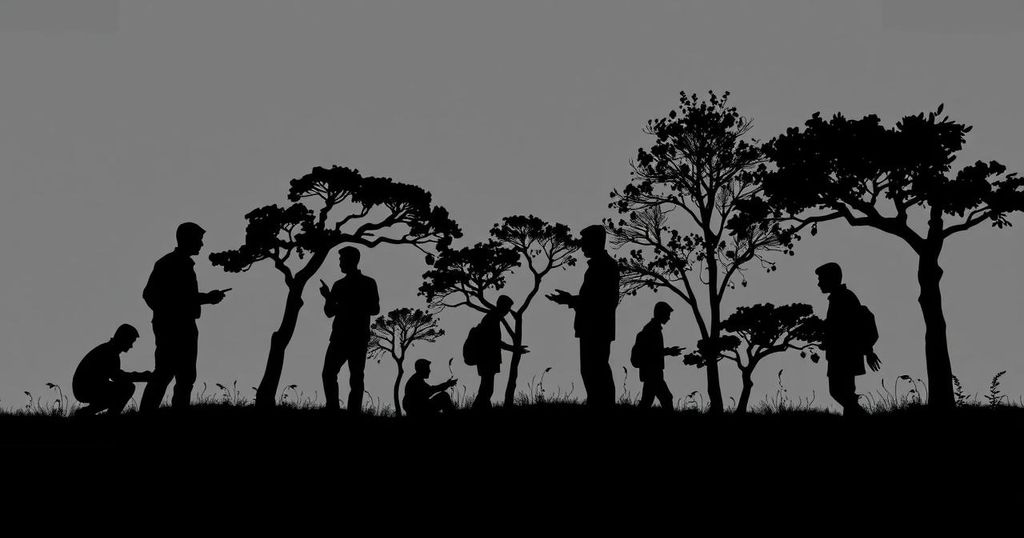Manipur’s Path to Peace: Emphasizing Reconciliation Over Dramatics
Summary
The article examines the ongoing ethnic conflict in Manipur, which has intensified since May 3 of last year. It emphasizes the need for reconciliation and reform, particularly concerning land rights and community trust, amidst a backdrop of historical grievances. The piece advocates for administrative action, disbandment of local militia groups, and the restoration of infrastructure as key steps towards resolution.
The ongoing ethnic conflict in Manipur, which began on May 3 of the previous year, continues to escalate with periodic recurrences of violence. This situation, unlike past issues in northeastern India that often received scant attention, has persisted in the public eye, primarily attributable to the contrasting approaches of Prime Minister Narendra Modi, who has remained relatively silent, and Rahul Gandhi, the Leader of the Opposition, who has been notably vocal. Crucially, resolving this conflict demands a unified effort from all parties involved, as it significantly hampers the development of the northeastern populace. The integration of these communities into the larger national framework—a process which has advanced considerably since India gained independence—must depend on thoughtful reconciliatory strategies rather than theatrics. For those experienced in working within these remote regions, it is clear that the tribal nature of societies there often fosters long-standing blood feuds and vengeance stemming from historical conflicts. Geographic isolation and inadequate communication have also inhibited efforts to unify these communities within the mainstream of Indian society. Nevertheless, the hill communities boast admirable traits such as resilience, a sense of adventure, and practicality—qualities that can enrich a diverse yet united Indian civilization. In prior years, relative peace in the Northeast provided significant relief to Indian security forces already stretched thin due to terrorism challenges in Jammu and Kashmir and ongoing conflicts with left-wing extremism. At a time when India is poised for significant economic and political advancement, it is imperative that the nation does not permit its borders to remain vulnerable to internal strife. To resolve the ongoing conflict, it is essential to recognize its underlying issues, including land rights, ethnic tensions, and historical grievances. The present disorder emerges from a complex legacy intertwined with medieval geopolitics, state demographics, and geography. A pivotal factor in the hostilities is the contentious directive from the Manipur High Court, which aimed to classify the predominantly Hindu Meiteis as a Scheduled Tribe (ST). Approximately 53% of Manipur’s populace identifies as Meitei, yet they inhabit merely 10% of the land, confined mostly to the Imphal Valley, which is surrounded by hill regions predominantly occupied by Kukis and Nagas. The imposition of constitutional protections under Article 371(c) has led to a situation where the Kukis and Nagas fear the implications of granting ST status to the Meiteis, as it may exacerbate their marginalization given that the political power is more concentrated in the valley where the Meiteis reside. These dynamic social tensions, compounded by disparate access to socio-economic opportunities, have bred a profound mistrust between the two groups. Additionally, the historical religious divergence, although important, pales in comparison to that of ethnic identity which underpins this conflict. Despite a shift from pre-colonial religious practices to Hinduism, the Meitei community continues to seek ethnic self-assertion amid fears that political power remains centralized among the Meiteis, particularly within the spectrum of a BJP-led government. Moving forward, reconciliation is essential. Both communities must be encouraged to engage in peace-building measures, including the disbandment of volunteer and defense groups, as well as surrendering weapons acquired unlawfully. Central forces, which retain respect in both communities, could facilitate building trust and securing the safe return of the displaced populations, which would necessitate investment in restoring vital infrastructure across the region. The issue of land rights, particularly the desire of the Meiteis to obtain unrestricted access to land within the state while addressing the concerns of the other communities, stands as a core challenge that needs to be directly addressed. A potential pathway forward may involve procedural amendments without initiating full ST concessions. Should administrative interventions falter, the resolution might require adjudication by the higher judiciary, reminiscent of how the Supreme Court addressed the Ram Janmabhoomi controversy.
The article discusses the persistent ethnic conflict in Manipur, highlighting its historical roots and the current socio-political dynamics. The conflict has roots in medieval geopolitical issues and is exacerbated by demographic changes and government directives impacting land rights and community statuses. It outlines how the differing access to opportunities and resources has led to a deep mistrust between the Meiteis and the Kukis, along with the implications of the BJP’s political dominance in the region. The piece argues for the necessity of reconciliation through administrative reforms and disarmament of local militia groups, as well as addressing long-standing grievances.
In conclusion, the conflict in Manipur necessitates a multifaceted approach focusing on reconciliation, land rights, and community trust-building. The historical and demographic contexts indicate that, while significant challenges exist, they can potentially be overcome with strategic administrative reforms and a commitment to disarmament. It is crucial that both communities engage collaboratively to prevent further escalation and promote integration within the national framework, ensuring stability in the region as India moves towards greater economic and political milestones.
Original Source: theprint.in








Post Comment